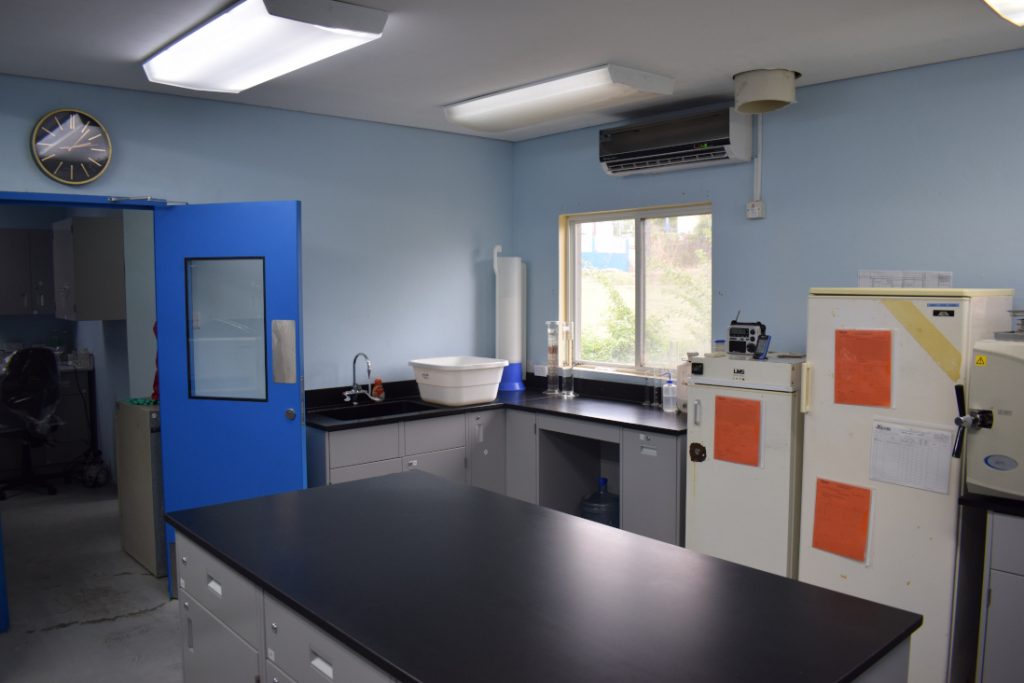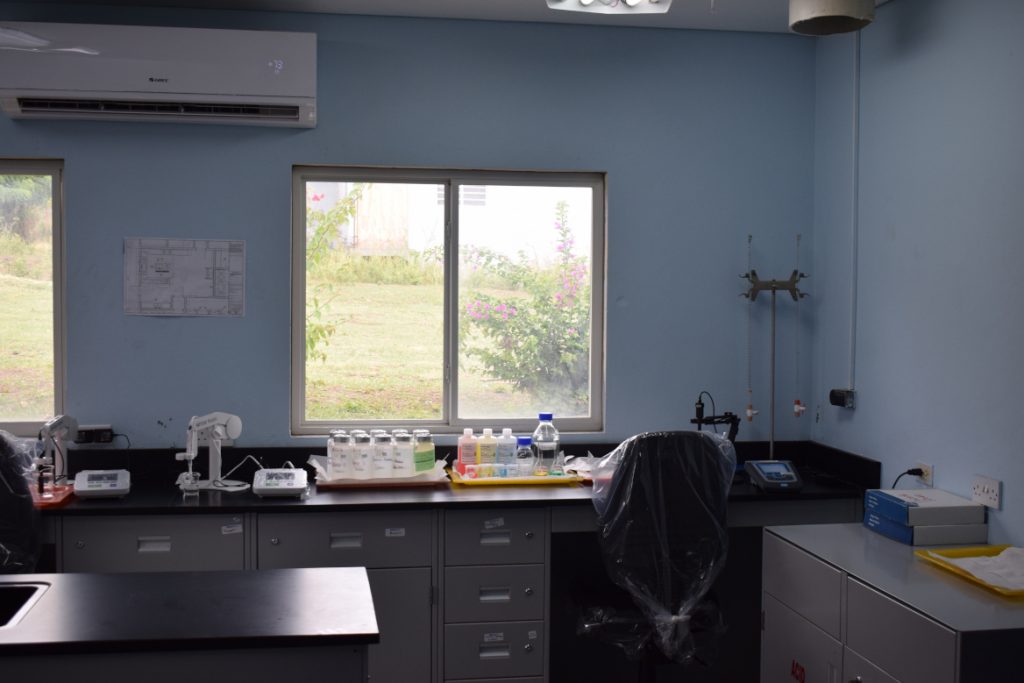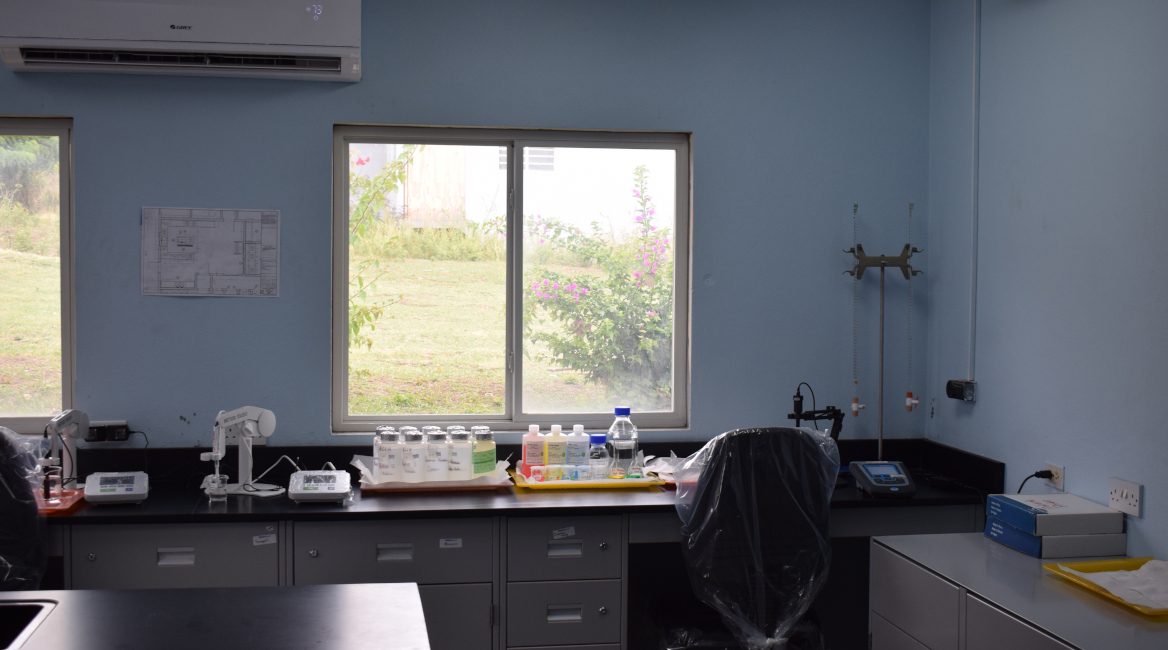Submitted by the St Kitts and Nevis Bureau of Standards (SKNBS)
To meet its local mandate and stay competitive and relevant globally, the St. Kitts and Nevis Bureau of Standards (SKNBS) has recently completed several physical upgrades to its premises. The bureau is also currently engaged in developing a National Quality Policy (NQP).
In addition to the aesthetic changes to the plant, the bureau has also upgraded the labs for international accreditation.

The SKNBS Microbiology Laboratory. 
The SKNBS Chemisty Laboratory.
“We aim to satisfy the World Trade Organization (WTO) Trade Facilitation Agreement (TFA) and meet the needs of the testing and measurements for trade,” the bureau stated.
The development of the NQP will facilitate capacity building in several critical priority areas identified by the government of St Kitts and Nevis.
A Quality Policy is a legal instrument used by governments in promoting and sustaining economic development, as well as environmental and social well-being. It is used to maintain an adequate quality infrastructure, relying on metrology, standardization, accreditation, conformity assessment (inspection and testing, among other services), and market surveillance.
The local Project Secretariat for all national operations is the national standards body – the SKNBS. The goal is to develop a NQP for St. Kitts and Nevis, which will aid in directing the crafting of the twin-island’s National Quality Infrastructure (NQI) and technical regulations regime and also support competitiveness and consumer protection.
Interviews, workshops, national quality infrastructure assessments, and other engagements with the public and private sector and civil society groups are planned to span just under a year. The development of the NQP in St Kitts and Nevis is part of a broader regional initiative led by CARICOM Regional Organisation for Standards and Quality (CROSQ), supervised by the Caribbean Development Bank’s Economic Partnership Agreement (EPA) and Caribbean Community Single Market Economy (CSME) Standby Facility, and funded by the European Union (EU).
By offering targeted assistance to national organizations, the initiatives aim to increase regional integration and improve trade and economic competitiveness.





